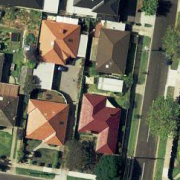Europe's biofuels battle
European policymakers are discovering the difficulty of curbing a biofuel industry they weaned five years ago as a low-carbon alternative to crude oil but which is increasingly at odds with the environment and food production.
To halt or put into reverse a $22 billion European biofuel industry requires a sound justification.
The problem with biofuels is that calculation of the full environmental impact of their production involves incredibly complicated, tortuous calculations using so-called life cycle assessment (LCA).
Probably the best course is to halt growth in the conventional biofuel industry, which produces fuel from food crops, pending better understanding of their full environmental and food price impacts.
That is broadly what the European Commission proposed last week, halving its target for crop-based biofuels to 5 per cent of road fuel in 2020, equivalent to present production levels.
But problems lurk.
The Commission pressed ahead last week with its best guess for the wider impacts of conventional biofuels which revealed that some biodiesel is as polluting as Canadian tar sands.
A future review raises the possibility of legislation from 2021 which would all but rule out such polluting biofuels.
That may be the most transparent approach possible, but still leaves developers and investors in the lurch.
And the Commission is proposing additional measures to drive a switch to non-food sources for advanced biofuels which is less founded in science and more about kick-starting a fledgling, alternative industry, and which risks repeating the original errors in supporting conventional biofuels.
Assessment
LCA is used to measure the full environmental impacts of economic activity.
The idea is to measure the environmental and other negative impacts of all stages in the production and consumption of goods, as a step towards paring these.
In the case of conventional biofuels the aim is to measure the full carbon emissions from production.
Life cycle stages include the cultivation, harvesting and transport of crops and subsequent extraction of sugar for refining into fuel, and, most difficult to measure, the indirect emissions of displacing food crops on to other land, potentially adding to deforestation.
LCA methods differ according to their purpose: it makes sense to use simpler numbers when setting targets for operators than when conducting academic analysis.
One issue is whether it is premature to address in policy targets the full estimates of indirect carbon emissions from biofuels, as estimated in various studies.
Uncertainties in such assessment include how far higher yields (from farm intensification using more fertiliser, labour and capital) can avoid land use change, including deforestation, as farmers try to produce food displaced by biofuels.
Clear indications
Nigel Mortimer, an LCA practitioner who leads the British consultancy North Energy Associates, told Reuters this week that he considered the Commission's latest proposed indirect land use change (ILUC) estimates to be premature.
"Despite many valiant attempts, no such model has yet gained universal acceptance. Furthermore, if this were to happen, it is highly doubtful whether adequate data will ever be available to generate wholly convincing results," he wrote last year in the bimonthly magazine of the Royal Statistical Society.
However, the main report which informed the Commission's latest proposals, published last year for by the EU's scientific and technical research laboratory the Joint Research Council, recommended ILUC factors, while acknowledging their complexity.
"Even when uncertainties are high, there is strong evidence that the ILUC effect is significant and that this effect is crop-specific. The use of a factor which attributes a quantity of GHG emissions to crop-specific biofuels was the favourite option (among experts)."
"Although further improvements could be brought in the future, the available studies are sufficient to give clear indications about the importance of ILUC effects from different crops."
Non-food
The Commission last week proposed a stepped approach, only requiring suppliers to report ILUC emissions for now, but not count these against legislated targets yet.
It also proposed to hike incentives for non-food biofuels, which appeared to have less scientific basis.
For example, it would allow straw to count four times the equivalent crop-based biofuels under EU-wide targets to get a tenth of road fuel energy from biofuels, electric vehicles and fuel cells by 2020.
The justification is that straw is a waste product (or "agricultural residue") which therefore requires no land in its production and so causes no indirect emissions.
But straw is not waste, instead a by-product of cereal production which has an economic value as animal bedding which is traded at more than 50 pounds per tonne, according to British agricultural websites.
Traditionally under LCA it would be allocated a portion of the carbon emissions from producing wheat, for example, according to its relative economic value or energy content.
The Commission does not apply that rule in this case, with the aim of encouraging the production of feedstock for advanced biofuels – all but non-existent at present – which use cellulose from grass, straw, waste or wood instead of sugar or oil derived from food crops.
For the same reason the Commission allows energy crops such as miscanthus grass to count twice, even though it uses land and so potentially displaces food crops in exactly the same way as conventional biofuels.
The result is inconsistent, an attempt both to be science-based and at the same time to support advanced biofuels.
That juggling may be the best the Commission can do to put the biofuel industry on a sounder footing, but it creates uncertainty, will scare investors and risks repeating mistakes.
The Commission's valiant efforts now underline the importance of trying to get policy support right in the first place.
This article was originally published by Reuters. Republished with permission.
















